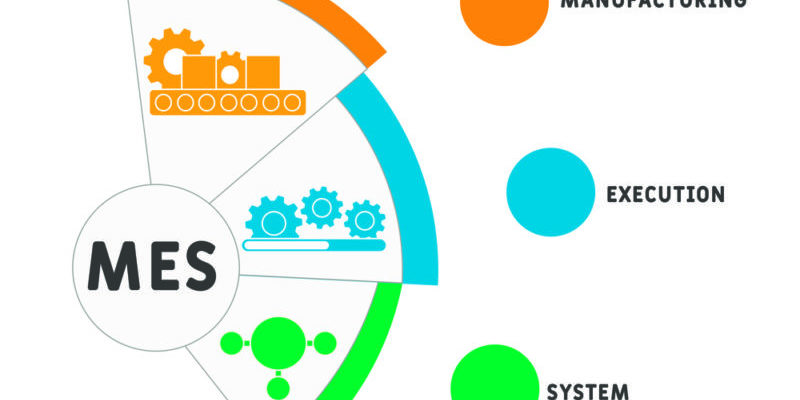Once your food manufacturing plant grows to a particular size, you’ll need to invest in an enterprise resource planning (ERP) system. And, at a later stage, you’ll probably realize the need to integrate a manufacturing execution system (MES), specifically developed for the food processing industry. When you invest in an ERP package, you are either customizing it with your in-house IT team or relying on an array of outsourced products for implementation.
Most ERP systems provide shop floor models engineered for other manufacturing sectors like warehousing and distribution. But they’re not exactly suitable for the food industry, which has several unique requirements of its own. With that in mind, a well-implemented manufacturing execution system should reconcile any shortcomings you encounter with your available ERP solutions. For this reason, an MES remains one of the best data and production management tools you can buy. Now, let’s explore why you should consider a food and beverage MES over an ERP system.
How does a food and beverage Manufacturing Execution System Different from an ERP system?
Shop floor ERP modules that aren’t designed for the food and beverage manufacturing industry can cut into productivity because they’re less than intuitive to use. On the other hand, MES software for engineered specifically for food processing offers a more streamlined interface that isn’t hard to figure out. And when your MES is accessible, your operators will be more inclined to use it. This will effectively help expedite and optimize your ROI.
Upon first implementing an ERP system, if it doesn’t go as planned, starting the process over is extremely time-consuming. And it can cost you considerably in terms of labor and lost progress in general. The majority of manufacturing execution systems on offer today were developed with the shop floor user at the forefront, and the MES solutions from EZSoft are no exception. When it comes to the user interface, accessibility, and intuitive design, our MES software can match the capabilities of any shop floor ERP system.
What are the advantages of choosing an MES over an ERP system?
Your automated food manufacturing equipment processes valuable data in real-time that you can analyze and compare later to boost shop floor productivity and streamline your manufacturing processes. Aside from providing up-to-date production analytics, automated food processing equipment gives you deeper insight into your operations to improve quality control and product consistency.
These machines automatically return live-time data aggregated from barcode and RFID scanners, x-ray machines, vision cameras, and temperature probes, all of which can be monitored continuously to increase line speeds and reduce information recording errors. Manufacturing execution systems integrate sophisticated food processing equipment much more readily than a typical shop floor ERP system.
MES software also enables offline operating capabilities, whereas most ERP modules do not. This is especially true if your ERP system connects to a remote data system. Given that network outages are so common, the ability to operate offline helps increase uptime significantly. Unplanned disruptions to your production lines are costly.
System downtime means you’ll usually have to pay wages to employees who aren’t working, discard expired food products, and accumulate additional production overhead. Several factors can lead to significantly reduced uptime, including equipment malfunction, but network outages top this list. An MES that lets you operate offline and remain independent from failure-prone networks can help you eliminate a significant portion of your unexpected production downtime.
Your food manufacturing business is distinct from every other manufacturing sector. Production plants constantly process inconsistent raw materials and variable catch weight products that expire. In comparison, most other manufacturing industries deal with materials that rarely change and don’t have the short shelf life of the typical food product. The majority of ERP systems you’ll encounter can’t natively handle the complexities of your food manufacturing production plant.
An ERP module that is ill-equipped to process your food items complicates revenue predictions and cost control. It can even lead to problems with reconciliation and valuation. An MES specifically engineered for food processing helps manage these challenges by streamlining your production processes and simplifying data collection, allowing you to make continual enhancements to your food processing facility.
Finally, the software modules on your manufacturing execution system give you an advantage over an ERP solution because they are customizable to your specific operational processes. Developers can tailor a receiving module to handle your dry ingredients and raw materials while designing a recipe management module to calculate and execute your mixing, blending, and injection processes. An MES supplies you with an SPC module, as well, to expedite slicing, cooking, and chilling. Most ERP systems don’t include these modules. If they do, then they carry a high price tag.
Streamline your operations with an MES solution from EZSoft
If you’ve already developed an ERP system in-house, or rely upon one of the several third-party industrial automation solutions, it might seem intuitive to extend your system to the shop floor. However, most ERP systems weren’t developed to handle the complexities of an automated food manufacturing plant.
If you are looking for a purpose-built MES solution and asking yourself how to find industrial automation companies near me, consider partnering with EZSoft, a leading full-service integrator of process control systems. Reach out to us by completing our online contact form or dial us now at (484) 568-5040.







